A day of policing in the heart of Cork's vibrant communities
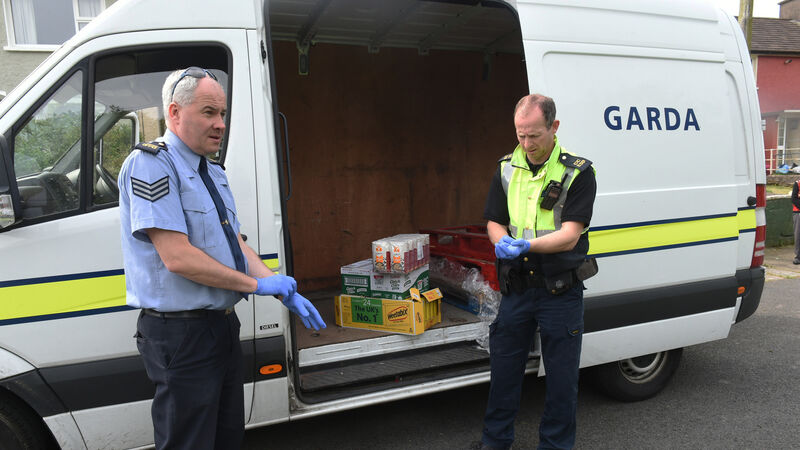
Garda Sgt Mick O'Connell, Community Policing and Garda Damien Desmond about to unload a delivery of food for Douglas Young at Heart. Pic: Larry Cummins.
IT’S Wednesday, February 16, a blustery day, with spits of rain promising that Storm Eunice is due. In Anglesea Street Garda Station, Sergeant Michael O’Connell is working on a policing plan for the upcoming Rag Week, liaising with student leaders and members of the Vintners Federation.
A Clonakilty native who has been a garda for 24 years, 15 of those years a community garda, he is sergeant-in-charge of community policing in Cork City. Community policing in the city is overseen by one inspector, and three sergeants, with 13 community gardaí on the northside, 13 on the southside, and ten in the city centre.
This Rag Week will be, officially, the first since the pandemic began. Tensions between students and local residents are a hardy perennial, and community gardaí tend to be seasoned peace negotiators.
“It’s important to remember that there are about 22,000 students in UCC, and we’ll never have any trouble with most of them,” he says. “The vast majority of students are very decent young people, and it’s important to keep that in mind. We engage with students, and we would try to impress upon them that they need to respect the law, and respect local residents.
“If necessary, there is a €75 fine for public drinking, but our job, initially at least, is to engage with people and educate them as to the law. A lot of our job is appealing to people’s better nature.”
Kay Griffin, a Ballinlough native with 24 years on the force, brings The Echo to UCC, where community gardaí are handing out recruitment leaflets outside the O’Rahilly Building, beside a tent advertising the college’s hugely successful Bystander Intervention initiative.
Laura O’Connor, from Glanmire, has been a garda for 14 years, and she is joined by Ardmore native Marie O’Neill, who has been on the force for 18 years. They are accompanied by probationary gardaí Barry O’Shea and David Driscoll.
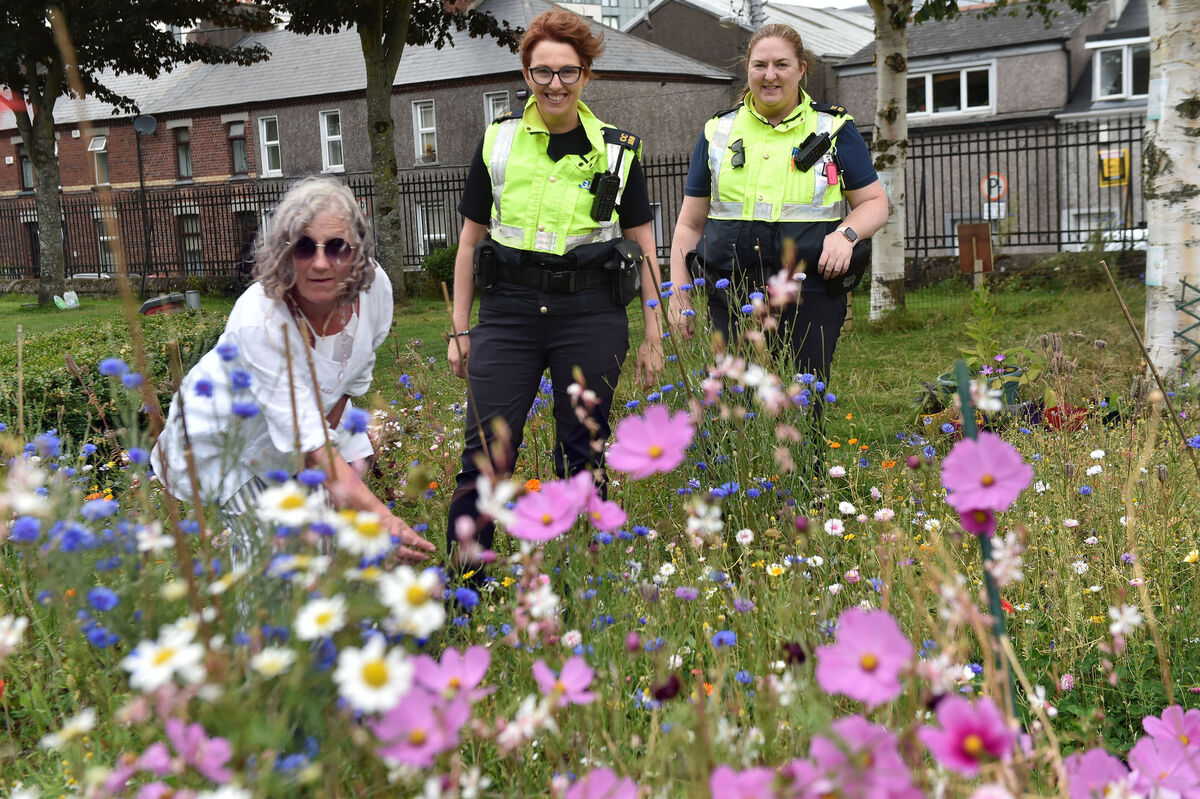
A young man comes up and says he is joining the gardaí, and asks Marie if she has any advice. She encourages him to be involved in community groups, as, she says, it’s important to be dealing with people on a daily basis.
Another young man approaches Marie with a big smile on his face and she asks if he is interested in joining the gardaí. He smiles even wider and replies “Absolutely not”. As they both laugh, he tells her his dad is a retired sergeant and “I heard enough about the job from him”. Marie is delighted when she realises she used to work with the young man’s father, and they have a great chat, but he’s still not for joining.
DIVERSITY
Working with the community gardaí today is Fahmeda Naheed. Fahmeda is diversity officer, and an intern at the Assistant Commissioner’s office in Anglesea Street. She says an important part of the new garda recruitment drive is to reach out to members of Ireland’s immigrant community.
“It’s very important that An Garda Síochána reflect the Ireland of today, and it can only help everyone if people see gardaí who look like them and are members of their own communities,” she says.
Leaving UCC to go on patrol, Kay and Laura bring David with them. Off Gould Street, someone has dumped a load of used furniture up a laneway, and neighbours are worried it will draw rats.
Laura makes a call to Cork City Council to ask it be taken away. A few streets away, an elderly resident complains that cars parking across her doorway mean she cannot get out of her house with her walker. Double yellow lines won’t do the job, Laura and Kay agree, and they make another call, this time to ask the council to look at installing bollards.
“You’d have a million and one things to do in a day, but often something will come up and you end up having to put stuff off till the next day,” Laura says, somewhat prophetically.
As the patrol car is heading down Barrack Street, a man is staggering along the pavement outside the old Sportsman’s Arms, and Laura pulls over. She and her colleagues get out of the car and say hello. The man is in a very disoriented state, and the gardaí quickly establish that he is extremely intoxicated, and, as they explain to him, a danger to himself.
They are very courteous, but they are firm as he protests that he is fine. He appears lost in himself, veering between bursts of activity and sudden drowsiness.
They arrest him under Section Four of the Public Order Act and Laura calls on her radio for a van to come and collect him. She then phones the 24-hour Garda Information Services centre in Castlebar to create an incident on the Garda Pulse system.
David and Kay chat with the man, who is now sitting on a window ledge and sucking on an unlit cigarette.
He stands up every so often, but sways from side to side before being persuaded to sit back down. He is barely coherent, but at one point he asks the gardaí loudly: “Why can’t you just leave me alone?”
All three reply that they can’t, that they have a duty of care for his wellbeing. They treat him with respect, and with extraordinary gentleness. Later, Kay will say that, in her job, “Most of the time, you get treated the way you treat people, and aggression usually just breeds more aggression”.
There’s a cold wind blowing down from the Bandon Road, and there’s drizzle in the air as the gardaí wait for the van to arrive from across town. When it does, two gardaí from another unit help the man into the back. They are as civil as their community policing colleagues, and they bring the man down to the Bridewell.
In the Bridewell, The Echo waits in the public office while he is being processed. The garda who signs the prisoner in has the formal title of gaoler.
On the wall of the public office is a notice board displaying various posters advertising public services.
Women’s Aid (1800 341900). Console 24-hour Suicide Helpline (1800 247247). A Crimestoppers (1800 250025) poster features two photographs of Jo Jo Dullard, last seen just after 11.30pm on November 9, 1995, at a public phone box in Moone Village, Co Kildare.
“A vehicle stopped to offer her a lift. Jo Jo has not been seen since.”
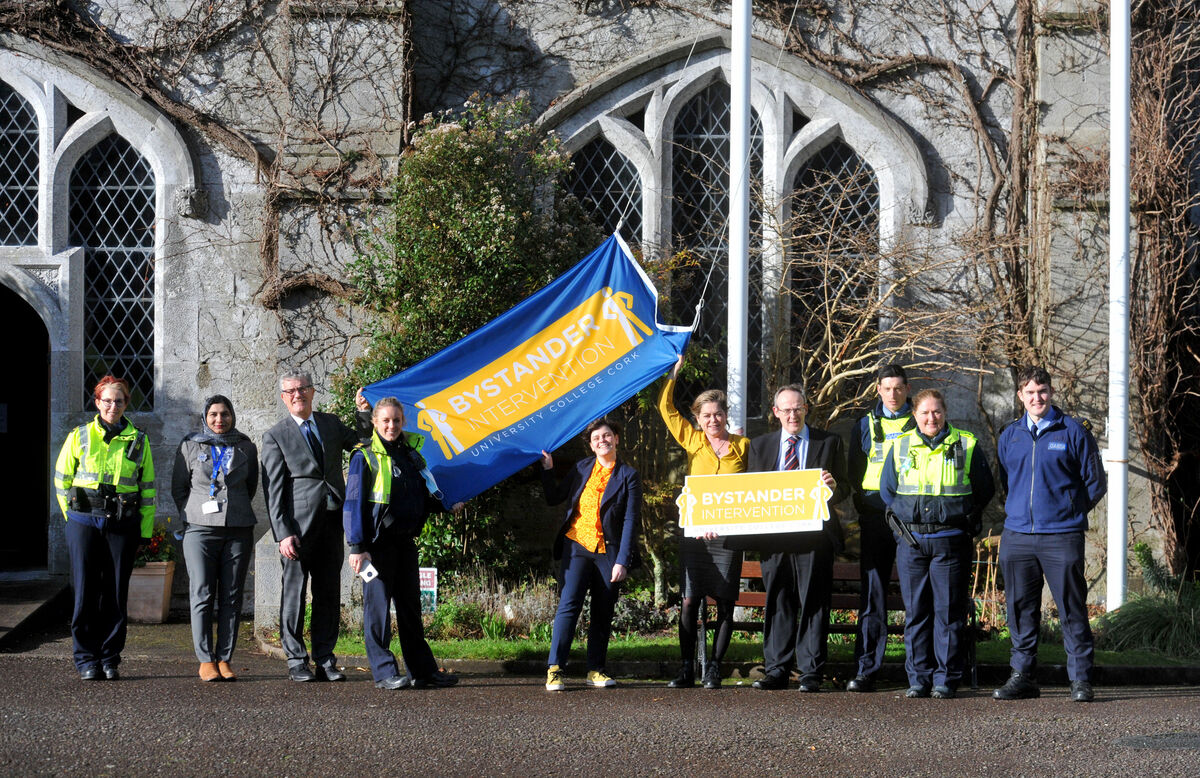
There has been a gaol at the Bridewell since 1731, and when the Royal Irish Constabulary left town a century ago, in April 1922, the old building was burnt to the ground. The current Bridewell was completed in 1932 and was the first custom-built garda station erected by the Irish Free State government.
The prison cell in the Bridewell is spartan and clean, with a blue plastic mattress and a stainless steel, floor-level toilet.
“The last place you ever want to end up,” Kay Griffin observes.
The prisoner is checked regularly as he sleeps off his intoxication. Kay is a third-generation garda, and she says her grandfather slept in the old dormitories upstairs in the Bridewell.
Kay mentions her mother, “the daughter, niece, wife, mother and sister of guards”.
When Kay was a child, she lived in Elizabeth Fort, in the old Barrack Street Garda Station. She says she accessed her grandad’s records and discovered she has worked in some of his old stations, in Union Quay, which has since been incorporated into Anglesea Street, and in Togher and Carrigaline.
Back in Anglesea Street, it’s coming up to 8pm, and rain has begun to fall, ahead of Storm Eunice. Marie O’Neill is heading to Phil Goodman in Grange.
Phil is co-ordinator of the community group Young@Heart, and when we call to her kitchen she is processing application forms for the Seniors Alert Scheme, whereby people can apply to get a monitored alarm for their homes.
“The first year is free, and it’s €65 a year after that, which is great value, and there’s always someone on the end of the line when you press the button,” Phil says. She has posted five applications already today, and Marie gives her three more completed forms.
Over the past two decades, Young@Heart has distributed food parcels under the EU’s Fund for European Aid for the Most Deprived scheme, which Phil says is a terribly demeaning title, or “FEAD” for short.
“With the help of community guards like Marie, we distribute seventy or so parcels a week, and the parcels contain non-perishables like cereals, soups, peas, beans, pasta, rice, porridge, cans of tuna, tea, coffee and so on.
“We don’t know who the parcels go to, we leave that to Marie and her colleagues, and that’s the right way, because it helps to preserve people’s dignity and privacy,” she says.
Marie says that it was great during the pandemic to be able to pick up the phone and let Phil know they needed extra parcels. “We would then deliver the parcels and check in to make sure people were okay, and we’ve been able to keep that connection ever since. It’s amazing for us to know that we can help people, and that’s thanks to Phil.”
Phil replies that community gardaí like Marie are brilliant, and, she says pointedly to The Echo, deserve more publicity. “They’re out there helping people every day of the week. And I want to give a special mention to Sergeant Mick O’Connell, because he’s a real gentleman.”
Marie points to a sheet of paper on Phil’s kitchen table and says Phil should tell The Echo about the Care-Ring. Phil obliges, explaining that every week ten garda-vetted volunteers each call 30 people for a chat and to make sure they’re doing OK. “Tesco gave us the phones, which was great of them.”
Young@Heart is currently on its way to becoming a charity, and, as we leave, Marie jokes that when it is a charity, the gardaí will be able to ask judges to direct courtroom donations to Young@Heart. “We’d take it too,” Phil replies.
LOVING THE JOB
Driving back to town, Marie reflects on the job she loves. “I’m very community-oriented, and I really feel that we can make a difference. I think that’s the reason we all joined the guards in the first place, to make positive changes in the community.
“An awful lot of any guard’s job is listening, because that’s often all any person wants, is to be listened to, and to be treated with a bit of respect. And that’s the same for all gardaí, not just for community guards. We meet people, often during hard times in their lives, sometimes at the worst times, and we might often be the last people you might want to meet, or we could be the people who are helping you when something terrible has happened.”
It’s coming up to 10pm, as Marie heads into Anglesea Street to catch up on emails.
The next evening, in the hours before Storm Eunice lands, when The Echo rings to check a fact with Sergeant Mick O’Connell, he says Cork’s community gardaí are patrolling the city centre and surrounding areas to ensure homeless people have shelter.
He says the community guards tend to have a good relationship with members of the city’s homeless population, and while he knows some homeless people prefer not to go to hostels, he says his colleagues will be trying to impress on everyone that emergency shelter is available, and will be encouraging people to take it for the storm.
He says it can often be difficult to quantify the work of community gardaí, but generally it tends to be about being proactive rather than reactive.
“Being a community garda is about the basics of policing,” he says. “You have to build up a rapport with people, be patient with them, and give time to build up trust.”
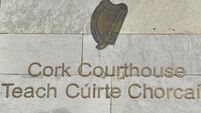
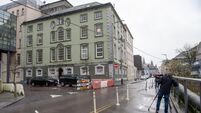

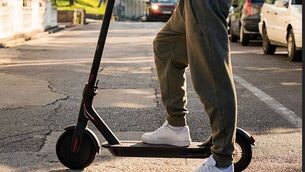



 App?
App?


